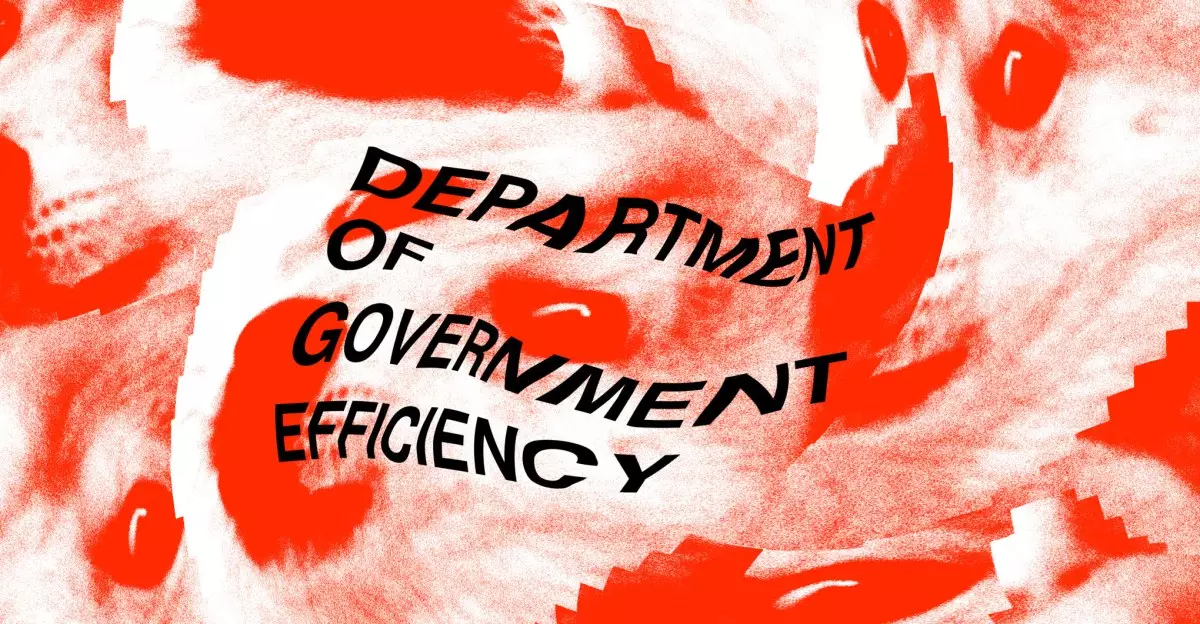In an ambitious yet controversial move, the Department of Government Efficiency (DOGE), directed by none other than Elon Musk, aims to establish a so-called “mega API” for harnessing Internal Revenue Service (IRS) data in collaborative and potentially groundbreaking ways. This initiative is intended to facilitate easier access to vital tax information through third-party software, which could enhance transparency and efficiency in governmental operations. However, the implications of such a project are vast, and the challenges it faces suggest a daunting path ahead.
The goal is not simply to create a data-sharing platform, but rather to position this mega API as a central hub for IRS data, potentially transitioning into a cloud-based architecture. This could allow various external developers to interact with IRS datasets more effectively. Yet, while the dream of digitizing and democratizing tax data holds promise, it also raises significant questions about privacy, security, and feasibility.
The Hackathon Dilemma
The DOGE’s plan includes organizing a hackathon, gathering IRS engineers in Washington, D.C., to expedite the API’s development within a 30-day timeframe. This aggressive schedule has already drawn skepticism from IRS insiders, who have voiced concerns that such a rapid rollout is technically impossible and may ultimately leave the organization crippled under the weight of its own hastily implemented systems. The complexities of IRS data and the intricacies of tax regulations cannot simply be ironed out in an intense weekend of programming.
Moreover, the involvement of third-party providers like Palantir—known for its controversial surveillance capabilities—raises further ethical dilemmas. It begs the question of who will truly benefit from this API and whether it is fostering accountability or merely creating new avenues for data exploitation. Incidentally, concerns have been amplified by indications that past government officials have eyed the IRS data for purposes such as stricter immigration enforcement, blurring boundaries of equitable data usage.
The Talent Gap and Governance Concerns
Critically, the personnel leading this initiative—young innovators like Gavin Kliger and health-tech CEO Sam Corcos—represent a divergence from traditional bureaucratic experience. Some sources express that they may lack the necessary government acumen or taxation expertise to oversee such a multifaceted project. This noteworthy gap in experience could lead to considerable missteps in a project that is already cloaked in complexity and public scrutiny.
Congress has also expressed hesitation regarding DOGE’s ambitions. Despite DOGE’s efforts to remove barriers to IRS data access, leaders in Washington have reinforced safeguards, strongly criticizing the agency’s overture to share sensitive information too liberally. Such protective measures shine a light on wider fears about governmental overreach and the privation of taxpayer rights in the interest of innovation.
The Future of IRS Data Management
While DOGE’s mega API initiative aspires to redefine governmental efficiency and transparency, the interplay of data accessibility, privacy rights, and operational readiness cannot be ignored. As taxpayer data begins to be viewed through unknown technological lenses, stakeholders must scrutinize the fine line between progress and potential misconduct. The fundamental question remains: will this endeavor genuinely empower citizens or instead become a conduit for further bureaucratic entanglements?

